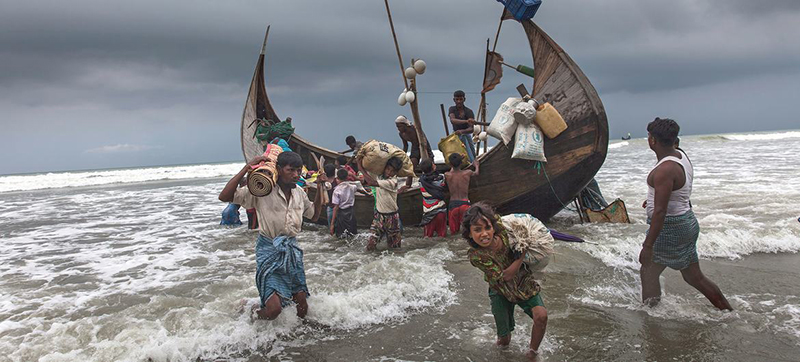UN expert urges Japan to ‘step up pressure’ on Myanmar junta

New York: Japan must assume a greater leadership role to address the deteriorating crisis in Myanmar and “step up pressure on the country’s military junta”, a UN-appointed independent rights expert urged on Friday.
“The international community’s response to the crisis in Myanmar is failing, and that failure has contributed to a lethal downward spiral that is devastating the lives of millions of people,” Tom Andrews, Special Rapporteur on the situation of human rights in Myanmar, said at the end of a 10-day official visit to Japan.
Referring to the worsening situation in the country, he said Senior General Min Aung Hlaing, who has led the junta since the February 2021 coup, had responded to widespread opposition to their rule with “barbarism and oppression” against the people of Myanmar.
‘Hallmarks of the junta’
“Arbitrary detention, torture and systematic attacks on villages have become hallmarks of the junta,” he said. “The military is repeatedly attacking civilian populations throughout the country and has quite literally made war on the Myanmar people.”
Japan’s leadership will be “vital” in recalibrating a failing international response to the crisis, he said, calling on Tokyo to work with regional and global allies to weaken the capacity of Myanmar’s military junta to attack its citizens.
‘This is an emergency’
The Special Rapporteur also raised alarms about an impending humanitarian disaster in the Rohingya refugee camps in Bangladesh. Without immediate additional funding, a decision to cut food rations by an additional 20 per cent will be made in the coming weeks, reducing daily food rations to 27 cents per person. The cuts would also potentially eliminate food rations completely for hundreds of thousands.
“This is an emergency,” he warned, adding that he had visited Japan based on his belief Tokyo has an “essential” role to play in resolving the crisis. “Further cuts will leave the Rohingya, already victims of genocidal attacks in Myanmar, at risk of starvation and drive thousands into boats and dangerous land routes in utter desperation.”
Impose sanctions
As such, he called on the Government of Japan and all Member States to immediately increase humanitarian contributions, including by redirecting funds from development programmes in Myanmar. He also urged Japan to impose targeted economic sanctions on the Myanmar military and its key sources of funding, just as it is doing in response to the crisis in Ukraine.
“Economic sanctions that deprive the junta of the resources required to operate its war-making machinery would weaken the capacity of the junta to attack its people,” the Special Rapporteur said.
Renounce ‘fraudulent’ elections
In addition, he urged Japan to terminate a Ministry of Defence training programme for military personnel from Myanmar, referencing credible reports linking previous trainees to military units that have committed atrocities against civilians.
He also called on the Government of Japan to clearly and consistently renounce the junta’s plan to stage fraudulent national elections as a means of legitimizing itself.
“It is not possible to hold a genuine election when opposition leaders are arrested, detained, tortured and executed, when key political parties have been dissolved, when it is illegal to criticize the junta, and when journalists are imprisoned for doing their job,” he said.
The upcoming Group of Seven (G7) Summit of leading economies in Hiroshima presents an opportunity for Japan to shine a light on the situation in Myanmar before the world, he said, urging the Prime Minister to ensure that the crisis is high on the agenda and that a strong, unified message and action emerges.
Special Rapporteurs
Special Rapporteurs and other rights experts are appointed by the UN Human Rights Council, are mandated to monitor and report on thematic issues or country situations, are not UN staff, and do not receive a salary for their work.



